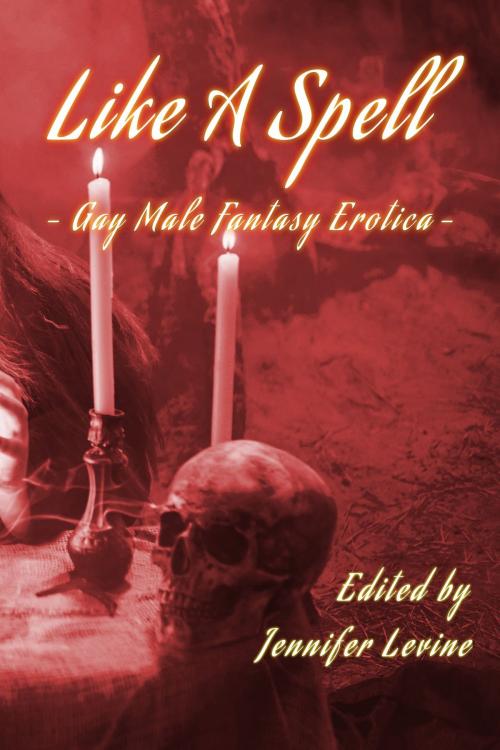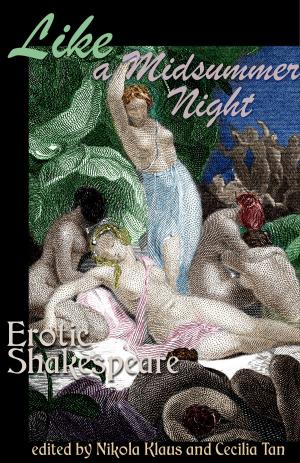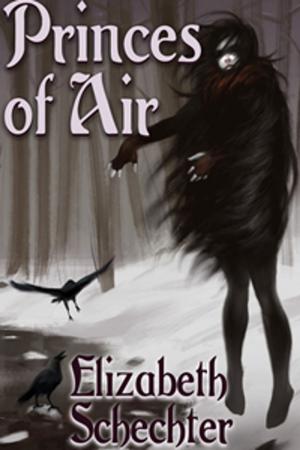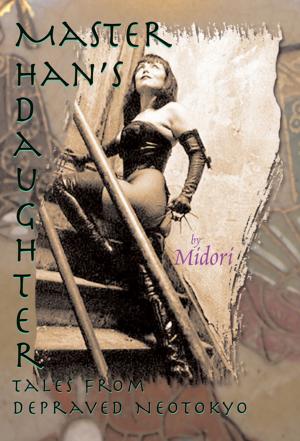| Author: | Jennifer Levine | ISBN: | 9781613901649 |
| Publisher: | Circlet Press | Publication: | January 11, 2018 |
| Imprint: | Smashwords | Language: | English |
| Author: | Jennifer Levine |
| ISBN: | 9781613901649 |
| Publisher: | Circlet Press |
| Publication: | January 11, 2018 |
| Imprint: | Smashwords |
| Language: | English |
For the Like a Spell anthology, we asked writers to challenge the traditional tropes and send us something new—original stories of magic users, interesting twists on the typical sorcerers and mages. The response was overwhelming and exciting, and we decided to publish four separate anthologies, using the theme of classical elements (earth, air, fire, and water) as the focus for each collection.
For the fire anthology, we’ve focused on stories portraying the love between men. When we thought fire, we thought of the passion and heat of men, the all-encompassing flames of their desires. We thought of the fire gods Ra and Vulcan, Agni and Xiuhtecuhtli. We thought about strength, ferocity, and power.
In “Passage, Performance, Passion,” Avery Vanderlyle explores what would happen if a Changeling wizard recruited an ordinary—but awfully cute—mortal male to participate in a sex ritual. The Changeling, Raavi, just wants to open a portal to find a gift his parents left him, but if he needs to get naked in a cave with a human in order to do so, who is he to argue?
In J. C. Williams’s “Here There Be Dragons,” we get a peek into David Maurey’s birthday celebration. David is a bit traditional and easily embarrassed, but that hasn’t stopped Callum from lovingly torturing him in front of all the other dragon handlers. The festivities continue at home, as Callum makes sure David’s birthday is one to remember.
In “The Best Part of the Power,” Ellis Sandry tells the story of two professors who geek out together and end up, well, a little more intimate than two respectable colleagues ought to be. Arin is young and freshly hired on to the faculty for his expertise in cultural thermatology, and Professor Brook is an experienced archaeologist, a member of the old guard. Arin has fantasized about the older professor, but he doesn’t actually think anything will come of it… until it does.
In “The Blood of the Mage,” Rhidian Brenig Jones reimagines the classic orphan-with-magic trope and turns it on its head. Yes, Leonas is an orphan, down on his luck, with no immediate future prospects, and yes, he has magical abilities that he’s been trying to hide. But when he meets Aleris, a startlingly handsome mage who looks much younger than he really is, Leonas learns that becoming a mage is a lot less about sitting in stuffy rooms bent over tomes and a lot more about mastering his body and harnessing his sexual energies for use elsewhere.
Lucien Grey shows us a lonelier side of a mage’s life in “The Prince’s Mage.” Phryne is blind, but he doesn’t need eyesight to see the beauty in Lysander, third in line to the throne and chained in a dungeon since adolescence. Phryne knows how to keep the demon inside Prince Lysander at bay, but when someone places a target on Lysander’s back, it’s the demon itself that Phryne needs to talk to in order to get some answers.
Finally, in “Fervidus,” Welton B. Marsland introduces us to Dunstan, a crotchety old wizard who’s too smart for his own good. When he finds out his apartment is under new management, he thinks nothing of it. But then the new landlord shows up to collect the rent, and Dunstan recognizes Martin Greenman, an “annoying little git” from his army days. Then he hears shocking noises from the landlord’s unit—right above his—and realizes that not only are they sex noises, but, worse, he’s… strangely intrigued by them.
For the Like a Spell anthology, we asked writers to challenge the traditional tropes and send us something new—original stories of magic users, interesting twists on the typical sorcerers and mages. The response was overwhelming and exciting, and we decided to publish four separate anthologies, using the theme of classical elements (earth, air, fire, and water) as the focus for each collection.
For the fire anthology, we’ve focused on stories portraying the love between men. When we thought fire, we thought of the passion and heat of men, the all-encompassing flames of their desires. We thought of the fire gods Ra and Vulcan, Agni and Xiuhtecuhtli. We thought about strength, ferocity, and power.
In “Passage, Performance, Passion,” Avery Vanderlyle explores what would happen if a Changeling wizard recruited an ordinary—but awfully cute—mortal male to participate in a sex ritual. The Changeling, Raavi, just wants to open a portal to find a gift his parents left him, but if he needs to get naked in a cave with a human in order to do so, who is he to argue?
In J. C. Williams’s “Here There Be Dragons,” we get a peek into David Maurey’s birthday celebration. David is a bit traditional and easily embarrassed, but that hasn’t stopped Callum from lovingly torturing him in front of all the other dragon handlers. The festivities continue at home, as Callum makes sure David’s birthday is one to remember.
In “The Best Part of the Power,” Ellis Sandry tells the story of two professors who geek out together and end up, well, a little more intimate than two respectable colleagues ought to be. Arin is young and freshly hired on to the faculty for his expertise in cultural thermatology, and Professor Brook is an experienced archaeologist, a member of the old guard. Arin has fantasized about the older professor, but he doesn’t actually think anything will come of it… until it does.
In “The Blood of the Mage,” Rhidian Brenig Jones reimagines the classic orphan-with-magic trope and turns it on its head. Yes, Leonas is an orphan, down on his luck, with no immediate future prospects, and yes, he has magical abilities that he’s been trying to hide. But when he meets Aleris, a startlingly handsome mage who looks much younger than he really is, Leonas learns that becoming a mage is a lot less about sitting in stuffy rooms bent over tomes and a lot more about mastering his body and harnessing his sexual energies for use elsewhere.
Lucien Grey shows us a lonelier side of a mage’s life in “The Prince’s Mage.” Phryne is blind, but he doesn’t need eyesight to see the beauty in Lysander, third in line to the throne and chained in a dungeon since adolescence. Phryne knows how to keep the demon inside Prince Lysander at bay, but when someone places a target on Lysander’s back, it’s the demon itself that Phryne needs to talk to in order to get some answers.
Finally, in “Fervidus,” Welton B. Marsland introduces us to Dunstan, a crotchety old wizard who’s too smart for his own good. When he finds out his apartment is under new management, he thinks nothing of it. But then the new landlord shows up to collect the rent, and Dunstan recognizes Martin Greenman, an “annoying little git” from his army days. Then he hears shocking noises from the landlord’s unit—right above his—and realizes that not only are they sex noises, but, worse, he’s… strangely intrigued by them.















